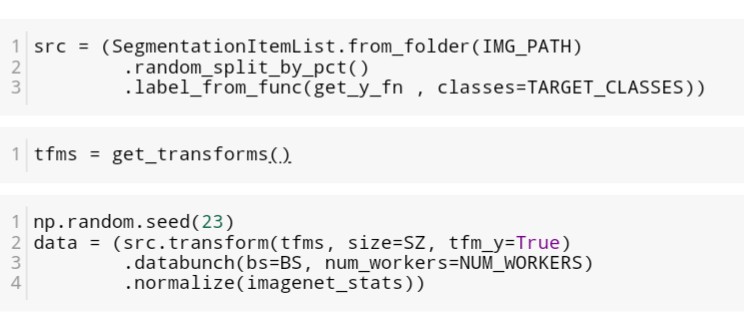Hi @tcapelle ,
This is what I did:
Where my classes are : [‘background’, ‘person’]
If you like you can join the thread I opened on image segmentation: Image Segmentation on COCO dataset - summary, questions and suggestions
Maybe this can help both of us and also other people 
